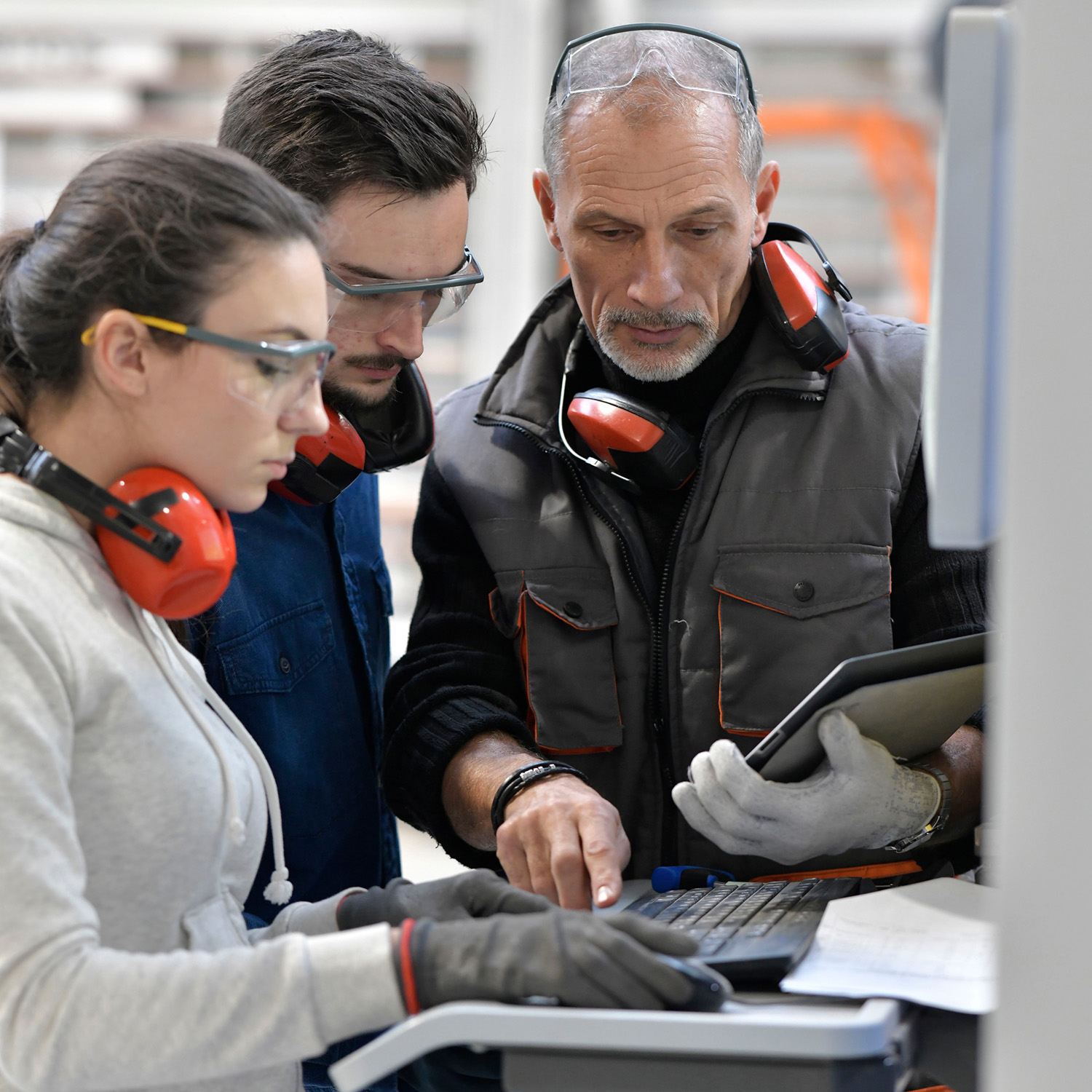
Our project
CirCLER will concentrate on those problems and challenges that furniture sector companies face when implementing their transition toward a more Circular Economy along the whole value chain and thus reduce the possible negative impacts and better exploit its opportunities.
Short term objectives
CirCLER aims to deliver a new qualification profile and the related new joint curricula for the Circular Economy Transition Manager (CETM) for the Wood and Furniture Industry. It will focus on all those companies relevant aspects affected by this transition. Moreover, the new curricula will allow for the enrichment and updating of other ESCO profiles affected by the Circular Economy transition.
Among its learning outcomes, it will include skills and knowledge to:
01

Allow companies to have a clearer vision of opportunities offered by Voluntary Instruments, Legislative Instruments, Products Design, New Materials, new or newly adapted Manufacturing Processes, Key Enabling Technologies, New Business Models.
Design and guide the Circular Economy transition strategy based on opportunities and challenges represented by previously mentioned areas and instruments in an integrated manner and along the whole value chain. This will also help companies to properly exploit possible internal synergies given by new (or updated) designs, materials, technologies and business models.

02
03

Monitor the effectiveness of the company advancements and markets evolution and thus identify further improvements.
Medium and long term objectives
Thanks to a set of activities to be identified at a later stage and specific project outputs, CirCLER aims to further strengthen existing collaborations and create new ones among sector stakeholders directly and indirectly involved in the project across several EU countries, allow creating new sectoral Networks to:
Strengthen EU furniture sector companies’ competitiveness by better preparing them to face challenges and opportunities. A structured approach toward the Circular Economy transition will enable them to properly deal with some of them, such as a growing legislative pressure and market demand for more sustainable, reusable and more easily cyclable/recycling products.

04
05

Update and increase the skills and knowledge of furniture students and workers and thus better help companies in the transition implementation.
Tackle the problem of aging workforce strongly affecting the sector by attracting a growing number of young people sensible to the reduction of companies environmental footprint.

06
07

Generate new collaborations and increase the capacity to delivering training courses and materials according to companies and workers skills needs and contribute to a stronger EU VET system.
Enable and foster other sector stakeholders to exploit circler outputs for their sectors' benefit.

08
CirCLER expected outcomes
CirCLER will develop a joint curriculum for the new professional profile “Circular Economy Transition Manager” (EQF 4, 5, 6) that will cover the current needs in green, digital and transversal skills, taking into account the policies and principles of Vocational Education and Training (VET) and of High Education (HE) of the European Union (ECTS, EQF, EQAVET). The ESCO profiles/occupations affected by the new tasks of this profile will also be studied.

The project will develop an innovative training toolkit that will include multimedia and interactive materials and applications, enabling VET providers and HE institutions to train professionals of the furniture sector to successfully lead this circular transition. The training tools will be available in seven EU languages and will allow learners to define personalized training paths adapted to their specific needs.
A pilot course will be carried out with the participation of 400 learners, validated by interested parties and recognized inside and outside the consortium thanks to the signing of an MoU (Memorandum of Understanding).
Summary of main expected outcomes:
- Circular Economy Transition Manager Knowledge, Skills and Competencies (KSC) needs.
- New Joint Curriculum for the Circular Economy Transition Manager.
- Report on ESCO Occupations affected by sector Circular Economy transition.
- An online training toolkit & a self-evaluation tool (training paths adaptable to learners needs).
- A pilot course for at least 400 learners.
- Exploitation Plan and a Blueprint for the adoption of CirCLER training across the EU.
- Several National and one International Circular Furniture Festival.

